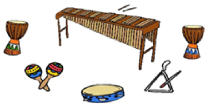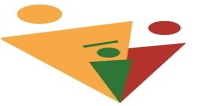Is education without corporal punishment feasible?
South Africans read about a crisis in schools on almost a daily base. During last week, a new crisis was reported, namely that corporal punishment is still administered at schools. Since corporal punishment has been used in schools for hundreds of years and is generally regarded by parents and teachers as an effective means to discipline children, schools have not stopped administering corporal punishment after it became illegal in 1996. This is viewed as a crisis by the opponents of corporal punishment.
Corporal punishment is illegal in South African schools, but a number of organisations and individuals are also promoting the banning of corporal punishment by parents in South Africa. One organisation that is funding these initiatives is “Save the Children” from Sweden. (Sweden is one of two countries where home education is banned.) An attempt by these organisations to ban corporal punishment by parents failed in 2007 when the relevant clause was not included in the Children’s Bill.
The opponents of corporal punishment promote an alternative that they call “positive discipline”, but they also admit that these alternatives are almost impossible to implement in schools. M&G reports: “With our teachers so overworked, this can be almost impossible.” It is actually even worse, because if the alternatives are not administered properly, it will provoke even worse behaviour from pupils. Regardless of whether alternatives means of discipline is impossible, regardless of parents that view corporal punishment as an effective means to discipline children and regardless of teachers that ask for the reinstatement of corporal punishment, these opponents believe that we have no choice, because they view it as just another form of abuse.
Unfortunately it is not the psychologists and political lobbyists that oppose corporal punishment that face the discipline problems children in schools. It is the teachers and the parents. One of the alternative means to discipline children is detention. When children misbehave at a school, it is not the psychologists and political lobbyists that must sit after school in the detention room, but the teachers. This means that the alternative means of discipline does not only affect the children, but also the teachers.
If the alternative means of discipline do not work, parents and schools have two choices. They can either abandon any attempts to discipline pupils or they can call in the police to discipline pupils. Some schools in the USA have already requested the assistance of the police. The police tends to view children as potential criminals and when they are deployed at school using a “zero tolerance” approach, strange things happen. A 12-year old girl was arrested for spraying herself with perfume. A 13 year old boy was arrested for burping in class. The MEC’s for Education in Kwazulu Natal and Gauteng have already threatened to use the police to discipline pupils that arrive late at school.
Given that corporal punishment is illegal in South African schools, and the alternative means to discipline are impossible to implement, it follows that it is impossible to discipline children in schools. If it is true that education is only possible where there is discipline, then it follows that education is impossible in schools. Fortunately many parents are serious about their children’s education and provide them with effective discipline at home. It is therefore only thanks to home discipline that school education is still possible to an extent.
Events
Has no connect to show!
Legal & Research
Homeschooling and the law
Home schooling was recognized in 1996 in Section 51 of the SA Schools
+ ViewCentres
Homeschool ABC
Support
Curriculums
Teneo Online School
Online High School, Primary School and Pre-Primary School offering ...
My Pals are Here! Primary Maths
My Pal are Here! Primary Maths Homeschooling parents, are ...
Frequently Asked Questions
-
Do home learners get homework?
In general all their schoolwork is homework and they do not get to do extra work in the afternoons. A tutor might give some extra work to complete...
-
What is home education or homeschooling?
Home education is the oldest form of education. The school system as we know it is actually fairly new. It is done under the guidance and the...
-
Do home learners sometimes wish they were in school and were normal?
They generally like being homeschooled. Some homelearners go to school for the experience but many return to homeschooling as within the homeschool...
-
How does homeschooling work?
Homeschooling is different for every family as it depend on the parents educational goals for their children Education is the development of the...

































Comments 1
Corporal punishment is actually increasing in some provinces, bespite the fact that it is illegal. Read about it at http://goo.gl/Te0H5